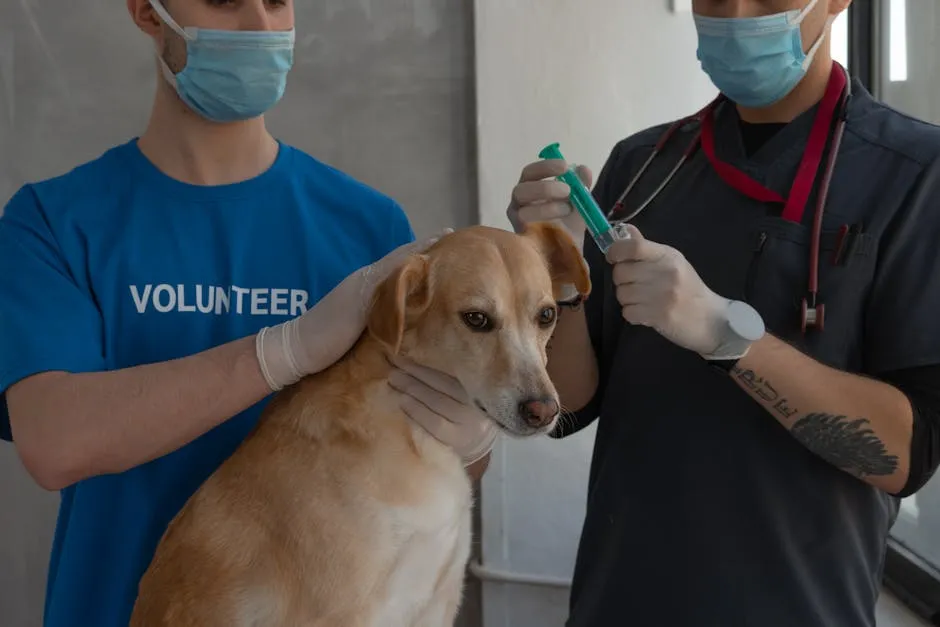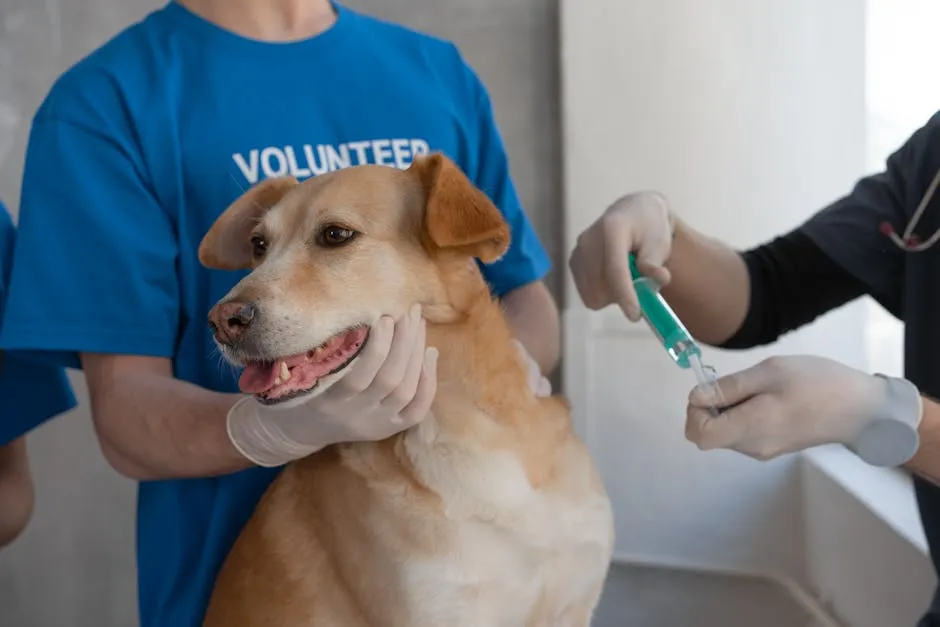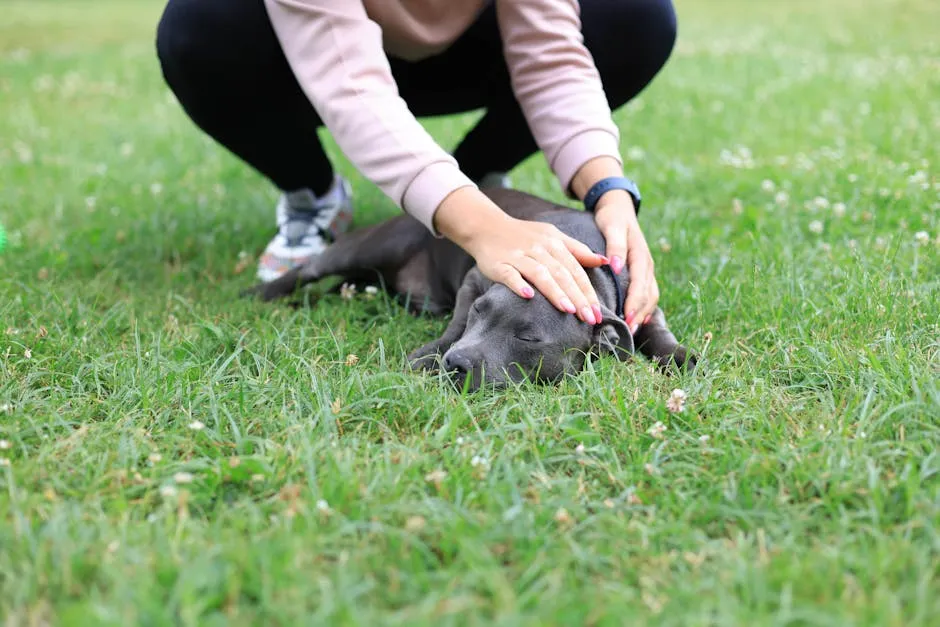Introduction
Panacur is a popular deworming medication for dogs. Worm infestations can lead to serious health issues in pets. Addressing these infestations is crucial for their well-being. Panacur contains fenbendazole, an active ingredient known for its effectiveness. It is generally safe when used as directed.
While you’re taking care of your furry friend’s health, don’t forget about their dental hygiene! Check out these Dog Treats for Dental Health. They not only help keep your dog’s teeth clean but also make treat time a happy occasion!
Summary and Overview
Panacur, the brand name for fenbendazole, is widely used to treat intestinal parasites in dogs. It’s effective against various worms, including roundworms, hookworms, whipworms, and tapeworms. It’s crucial to note that Panacur is not effective against Dipylidium tapeworms. The FDA has approved Panacur for use in dogs, ensuring its safety and efficacy.

You can administer Panacur in several forms, such as granules, paste, or suspension. Before starting treatment, consult your veterinarian to determine the best approach for your dog’s specific needs. Generally, Panacur is well-tolerated by dogs and has a low incidence of side effects.
Speaking of keeping your dog happy, have you considered a Dog Chew Toy? They help keep your pup entertained while promoting healthy teeth and gums!
What Is Panacur?
Definition and Composition
Panacur is the brand name for the deworming medication fenbendazole. It is approved for treating intestinal parasites in dogs, making it a reliable option for pet owners.
Types of Worms Treated
Panacur effectively targets several types of intestinal worms, including:
- Roundworms: Common in puppies and adult dogs, causing various health issues.
- Hookworms: These can lead to anemia and weight loss. Learn more about hookworms in dogs.
- Whipworms: Known for causing severe gastrointestinal distress.
- Tapeworms: While effective against some species, it does not work on Dipylidium.
- Off-label uses: Some veterinarians use Panacur for Giardia and lungworms, expanding its utility in treating parasitic infections.
This broad-spectrum effectiveness makes Panacur a go-to choice for many veterinarians when it comes to deworming dogs.

And while you’re at it, don’t forget about an essential Dog Grooming Kit to keep your pup looking sharp and fabulous!
How Does Panacur Work?
Mechanism of Action
Panacur’s active ingredient, fenbendazole, effectively targets parasitic cells. It disrupts the function of microtubules, which are vital for the worms’ structure and movement. By binding to tubulin, fenbendazole prevents worms from forming essential microtubules. This interference inhibits their ability to grow and reproduce, ultimately leading to their death.
Administration Forms
Panacur is available in several forms, making it easy to administer. You can choose from granules, paste, or suspension. Granules are often mixed with food, while the paste can be given directly or mixed in. The suspension is typically administered using a syringe. This flexibility ensures that pet owners can find a method that works best for their dogs.

And speaking of keeping your dog hydrated, have you checked out a Dog Water Bottle? Perfect for those long walks or hikes!
Dosage Guidelines for Panacur
Recommended Dosage
The dosage of Panacur varies based on your dog’s weight and the specific type of worm being treated. The average daily dose is approximately 50 mg per kilogram of body weight, which is around 22.7 mg per pound. Here’s a simple dosage chart for different weights:
- 10 lbs: 1 g packet
- 20 lbs: 2 g packet
- 30 lbs: 1 g + 2 g packets
- 40 lbs: 4 g packet
- 50 lbs: 1 g + 4 g packets
- 60 lbs: 2 g + 4 g packets
- 80 lbs: Two 4 g packets
Always mix the granules with food for better consumption.

While you’re at it, keep those paws clean with a Pet Nail Clipper. Regular nail trimming is essential for your dog’s comfort and health!
Duration of Treatment
Typically, the treatment duration for Panacur is between three to five days. For most parasites, three consecutive days of administration is effective. However, if you’re treating Giardia, your veterinarian may recommend an extended duration. It’s important to follow your vet’s instructions for the best results.
Side Effects and Safety Considerations
Common Side Effects
While Panacur is generally safe, some dogs may experience side effects. Common issues include vomiting, diarrhea, and loss of appetite. These symptoms are usually mild and temporary. If your dog exhibits severe reactions, contact your vet immediately. Allergic reactions can occur, though they are rare. Keep an eye out for signs like swelling, hives, or difficulty breathing. Learn how to recognize allergic reactions in dogs.

To help your dog feel more at ease during treatments, consider investing in a Dog Anxiety Vest. It can provide comfort and security for your furry friend!
Safety Precautions
Certain dogs should not use Panacur. Puppies under six weeks of age are particularly sensitive and should avoid this medication. Additionally, dogs that are sick or debilitated may not tolerate it well. Pregnant dogs can use Panacur, but consult your veterinarian first. It’s crucial to weigh the risks and benefits before administering this treatment.
When to Use Panacur for Dogs
Indications for Use
Panacur is typically prescribed when your dog is diagnosed with intestinal parasites. Common scenarios include confirmed infections of roundworms, hookworms, and whipworms. Before starting treatment, veterinarians often recommend a fecal test to identify the specific parasites involved. This ensures the right medication is used for your dog’s condition.

And while you’re monitoring your dog’s health, consider having a Pet First Aid Kit handy for those unexpected moments!
Preventative Measures
Establishing a deworming schedule helps keep your dog healthy. Adult dogs should generally be dewormed at least twice a year. For puppies, a more frequent schedule is recommended: deworm at six, eight, ten, and twelve weeks of age. Regular check-ups can help adapt your dog’s routine based on their lifestyle and environment.
Efficacy of Panacur
Effectiveness Rates
Panacur has shown impressive effectiveness against various intestinal parasites in dogs. Research indicates it is 98-100% effective against roundworms, hookworms, and whipworms. For tapeworms, particularly Taenia species, effectiveness ranges from 73-100%, but note that it does not work against Dipylidium caninum, the most common tapeworm in dogs. Completing the entire treatment course is vital for full efficacy. Stopping early may leave surviving parasites, causing reinfection.

For those dog owners who love to keep their pups active, consider looking into Dog Agility Training Equipment. It’s a fun way to keep your dog fit and mentally stimulated!
Comparison with Other Dewormers
When comparing Panacur to other dewormers, such as pyrantel pamoate and praziquantel, Panacur stands out due to its broad-spectrum action. While pyrantel primarily targets roundworms and hookworms, it does not affect whipworms. Praziquantel is effective against tapeworms but lacks efficacy against other parasites. Panacur’s versatility in treating multiple worm types makes it a go-to choice for many veterinarians. Its adaptability and proven results solidify its position in canine deworming.

And let’s not forget about a Dog Life Jacket for those water-loving pups! Safety first when they’re making a splash!
Conclusion
In summary, Panacur is an effective deworming medication for dogs, targeting various intestinal parasites. Its high effectiveness rates make it a reliable option. However, it’s essential to consult your veterinarian for proper diagnosis and treatment. Regular deworming schedules can help prevent future infestations, ensuring your dog’s health and well-being. Don’t hesitate to talk to your vet about the best deworming routine for your furry friend!

And while you’re at it, why not treat your pet to a cozy Dog Bed? After all, a well-rested dog is a happy dog!
FAQs
What types of worms does Panacur treat?
Panacur effectively treats several intestinal worms in dogs. It targets roundworms, hookworms, whipworms, and some tapeworms. However, it’s important to note that Panacur does not work against Dipylidium tapeworms. Its broad-spectrum coverage makes it a popular choice among veterinarians for dog deworming.
How long does it take for Panacur to start working?
Panacur typically starts working within hours of administration. Most dogs will see significant results within three days of treatment. It’s crucial to complete the full course to ensure all parasites are eliminated. Following your veterinarian’s dosing schedule will provide the best results for your dog.
Is Panacur safe for puppies?
Panacur is generally safe for puppies older than six weeks. However, puppies under this age should not receive it due to their sensitivity. Always consult your veterinarian for the best deworming practices for your young pup. They can give tailored advice based on your puppy’s age and health status.
What should I do if I miss a dose of Panacur?
If you miss a dose of Panacur, administer it as soon as you remember. However, if it’s close to the next scheduled dose, skip the missed one. Never double up on doses. Contact your veterinarian if you have any concerns about missed doses or your dog’s treatment plan.
Can Panacur be used for other pets?
Yes, Panacur can be used for other animals, including cats and some livestock. It is effective against similar parasites in those species. However, always consult your veterinarian before administering Panacur to any pet, ensuring the appropriate dosage and formulation for their specific needs.
Please let us know what you think about our content by leaving a comment down below!
Thank you for reading till here 🙂
All images from Pexels





